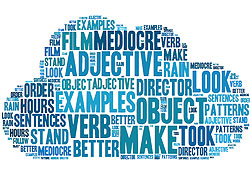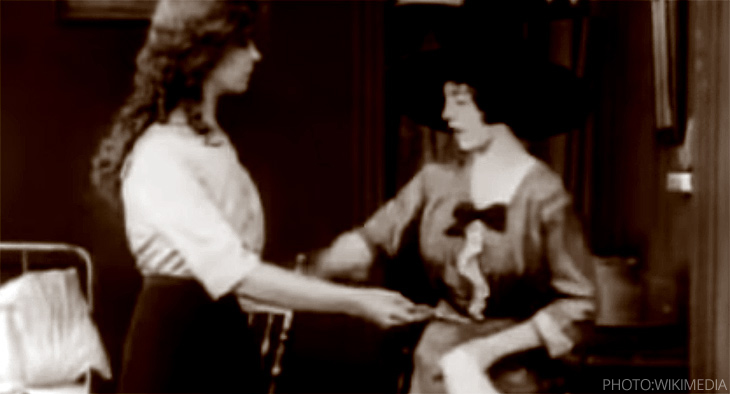1. Make + noun.
Hollywood remade a lot of old silent films.
The original film's perfect, so why bother remaking it?
It's an easy way to make a quick buck.
Use the phrases with make to complete the sentences. This exercise is in two parts. Scroll down to see the second part.
Part 1
Now complete Part 2.
Part 2
3. Make + object + adjective/verb.

Look at the examples.
They took a mediocre film and made it better.
(make + object + adjective)The director made me stand in the rain for three hours.
(make + object + verb)
Put the words in order to make more sentences that follow these patterns.
4. Emphasis.
Look at the examples from the forum entry in Reading. The words far, even and still can be used for emphasis.
The acting was far better in the 1933 original.
(The acting was much better.)The remake's even better, though.
(The original is good, but the remake is better.)Though compared to the original it's still disappointing.
(The remake has some positive aspects; despite this, it is disappointing.)
Match the two parts to complete more sentences containing far, even and still.
5. Emphasis.
Record the complete sentence with the correct option.
For more information about even see the Grammar Reference.
7. Presenting an opinion: Contrasting.
Match the questions and answers. This exercise is in two parts. Scroll down to see Part 2.
Part 1
Now complete Part 2.
Part 2
8. Linking words.

Choose the correct word to complete the sentences.
For more information about although, but and however see the Grammar Reference.
9. Presenting an opinion: Linking ideas.
Choose the correct option to complete dialogue. This exercise is in two parts.
Part 1
Now complete Part 2.
Part 2
11. Defining and adding information: Relative clauses.
Relative clauses
We use relative clauses to add information:
This is the place where we first met.
(where to define a place)
or to make it clear who or what we are talking about:
This is the actor whose parents live near us.
(whose to indicate possession)
In relative clauses we use who and whom for people.
This is the woman who was in that film.
NOT: This is the woman who she was in that film.
To whom did the award go? (Formal style)
Who did the award go to? (Normal speech)
We use that for people or things.
This is the movie that I like.
The producer is the person who/that finances a film.
We use which/that for things.
A boom is the long pole that is connected to a microphone.
The film is a musical, which has some nice songs in it.
Use the words to complete the sentences.
